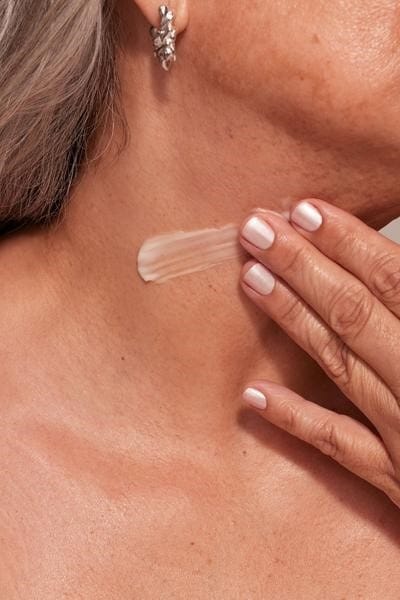
Protect Your Skin from the Elements Through the Changing Seasons
Protect Your Skin: Changing seasons can present different skin challenges. You may even feel like you have to adjust your routine because certain products aren’t working as effectively in one season as the previous one — you’re not alone! As the seasons change, the elements, be it the sun or whipping winds, can affect your skin. Let’s explore these obstacles while providing easy, useful solutions to promote a healthy complexion year-round.
Table of Contents
Understanding the Impact of Seasonal Changes on Your Skin
Understanding how seasonal changes affect your skin enables you to take better care of it, leading to a healthier and more radiant complexion year-round.
The Effects of Winter on Your Skin
- Dryness and flakiness
- Chapping and cracking
- Increased sensitivity
- Reduced oil production
- Exasperated skin conditions like eczema, psoriasis, and rosacea
The Effects of Summer on Your Skin
- Increased sun exposure and UV damage
- Hyperpigmentation
- Dehydration
- Increased oil production
- Acne breakouts
- Sun sensitivity
Essential Skincare Tips for Every Season
Adjusting your skincare routine with the seasons is important because your skin’s needs can change significantly with varying weather conditions, such as humidity levels, temperature fluctuations, sun exposure, and environmental factors.

Summer Skincare Tips
- Wear SPF: Always protect your skin with SPF, preferably a broad-spectrum mineral sunscreen with at minimum SPF of 30. Reapply every two hours, even more frequently, if you’re swimming or sweating. Mineral sunscreens are ideal because they are free from harsh chemicals and don’t penetrate the skin, making them a safe choice for sensitive skin.
- Conceal and Protect: If you want a little coverage, go for a CC Cream with SPF. CC creams (Color-correcting creams) help even out skin tone and cover imperfections. They typically provide light to medium coverage, which helps create a smooth, natural-looking base without the heaviness of traditional foundations.
- Use a Lightweight Moisturizer: Switch to a gel-based or lightweight moisturizer that won’t clog your pores. It’s the perfect seasonal swap to help maintain hydration without feeling heavy on your skin.
Fall Skincare Tips
- Switch to a Slightly Heavier Moisturizer: As humidity drops and temperatures fall, your skin may need more hydration. Consider using a creamier hydrating moisturizer to keep your skin supple, prevent dryness, and prepare your skin for the colder months ahead.
- Use a Hydrating Serum: Incorporate a hydrating serum with ingredients like hyaluronic acid, peptides, or glycerin to boost moisture levels.
- Exfoliate Gently: The transition from summer to fall can leave your skin looking dull. Exfoliate one to two times a week to slough off dead skin cells and unclog pores that may come to the surface due to increased oil production during the sweaty summer months.
Winter Skincare Tips
- Hydrate Overnight: As humidity drops and temperatures fall, your skin may need more hydration. It’s time to incorporate an overnight cream. This will keep your skin supple and protected while preventing dryness.
- Add a Face Oil: Consider layering a nourishing face oil over your moisturizer to help lock in moisture and provide an extra layer of protection against the elements. Oils like argan, jojoba, or rosehip are excellent choices and suitable for most skin types.
- Opt for a Cream Cleanser: If your skin feels dry, switch to a cream-based or hydrating cleanser. These are less likely to strip away natural oils compared to foaming or gel-based cleansers.

Spring Skincare Tips
- Switch to a Lighter Moisturizer: As temperatures rise and humidity increases, you might not need as heavy a moisturizer. Opt for a lightweight moisturizer to keep your skin balanced and hydrated without feeling greasy.
- Exfoliate Regularly: While exfoliating is always a good idea, spring is an optimal time to slough off the dead skin cells that may have accumulated over the winter. Exfoliate one to two times a week to reveal a brighter complexion and enhance the benefits of your other skincare products.
- Add Antioxidants: Spring is an excellent time to boost your routine with antioxidants like Vitamin C to help protect your skin from environmental damage and brighten your complexion. The best way your skin receives them is with a serum. Most serums use smaller molecules or advanced delivery systems, allowing active ingredients to penetrate deeper into the skin. You can continue this tip into the summer months, too!
Additional Tips for Protecting Your Skin
Here are some additional tips to set you up for seasonal success!
Stay Hydrated
Whether you’re dealing with whipping winds or a scorching summer sun, what you put into your body largely affects the appearance of your skin. Increase your water intake as needed based on changes in temperature and humidity. Even indoor heating and AC can affect your skin’s hydration levels. Incorporate hydrating foods like fruits and vegetables and broth-based soups, and limit caffeine and alcohol, which have a diuretic effect and cause skin dehydration.
Adapt Your Skincare Routine to the Environment
Your skin’s needs may vary based on humidity and temperature. Pay attention to how your skin reacts to environmental factors and make changes accordingly — and that includes when taking a vacation that’s in a drastic change of environment from where you’re currently living. You don’t have to invest in a new skincare routine. Instead, opt for travel-sized products to get you through your trip.
Always Moisturize and Use Sun Protection
Moisturizing year-round is crucial for maintaining healthy, balanced skin, regardless of the season. By incorporating a moisturizer into your daily skincare routine year-round, you ensure your skin remains hydrated, balanced, and resilient against environmental and internal factors.
Also, always protect your skin with SPF or a CC cream with SPF to prevent the signs of premature aging while preventing sunburn and skin cancer. Just because the sun isn’t shining doesn’t mean your skin is not susceptible to damage. Research suggests that sun exposure causes up to 90 percent of the visible signs of aging.
Conclusion
Each season presents different challenges for your skin. By adjusting your routine, you can effectively target these specific concerns — whether it’s combating dryness, controlling oil, or battling acne. Remember that even though you’re making tweaks to your regime throughout the year, always choose formulas based on your skin type.


